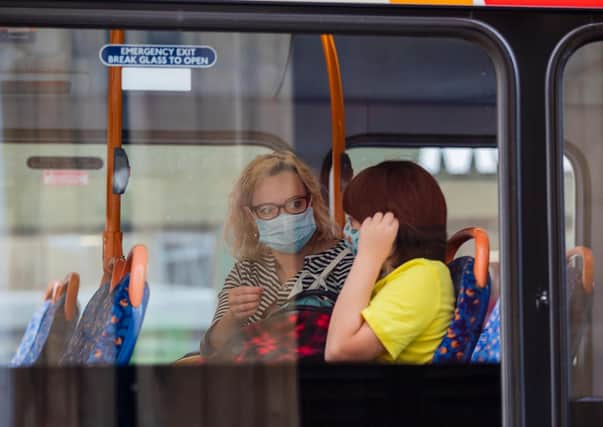Health and police bosses were not fully briefed ahead of face covering rule announcement


The government announced today (Tuesday) that those who fail to comply with the new rules will face up to £100 in fines.
Police are expected to ultimately enforce the fines if anyone refuses to cover up in shops after this date.
Advertisement
Hide AdAdvertisement
Hide AdLincolnshire Police Chief Constable Bill Skelly said: “Over the last few months we’ve seen that the majority of people here in Lincolnshire are complying with the rules set out by Government and which are designed to help keep people safe from contracting or transmitting Coronavirus.
“We’re grateful for that support and have no reason to think that people would now act in a different way in relation to this most recent announcement, the exact details of which we are still considering in liaison with our local partners.”
Martin Hewitt, chairman of the National Police Chiefs’ Council, added: “While we were unaware that the announcement was to be made last night, we have the time to work closely with the Home Office, retailers and trade bodies on the implementation of new regulations on the wearing of face coverings in shops.
“We will expect retailers to manage entry to their stores and compliance with the law while customers are inside, with police involvement as a last resort. As with other coronavirus regulations, we will follow an approach of engaging, explaining, encouraging and only enforcing where encouragement has been unsuccessful.
Advertisement
Hide AdAdvertisement
Hide Ad“Experience shows that compliance with the regulations to manage the spread of coronavirus is high and this must continue to be a joint effort between the retail sector, customers, government and police. This is particularly important as demand on the police increases as the lockdown eases.”
Lincolnshire County Council’s assistant director of public health Tony McGinty said officials were “short on details” at the moment.
“My initial reaction is one of understanding that as places get more crowded and we have more freedoms we might not be able to keep distance, therefore face coverings might be a good thing to start doing,” he said.
However, he said bosses needed to know more including the type of face coverings needed or how the new rules might apply in other situations.
Advertisement
Hide AdAdvertisement
Hide AdHe said he did not know why the government had chosen to make the move now, rather than at the peak of the pandemic, but said it could have been down to people being more careful, non-essential shops being closed and an ability to keep distanced that reduced the need for masks.
Asked about pubs and restaurants he said: “For food and drink areas, wearing a mask is not straightforward by any means, it’s very difficult to eat and drink if your face is covered so they may not want to go for those because it’s just not practical.
“We also have more choices about whether we go into a bar or a restaurant, whereas we may have to go into a shop or to go shopping for things.”
He said his limited experience of visiting shops recently had found people’s behaviour to “generally be very sensible around distancing and allowing the space to move around, stopping and waiting”.
Advertisement
Hide AdAdvertisement
Hide AdHowever, asked if he wore a mask he said: “No, I don’t. I keep myself distanced from other people.
“I probably go into the shop once a week or so as well, so I’m taking a fairly cautious approach at the moment, largely because of my job I can’t afford to have to self-isolate at the moment, because I’m in contact with someone with symptoms.”
It has been compulsory to wear face coverings on public transport since June 15.
There are certain exemptions however, and it is believed these will continue to apply under the latest government move. They include:
A child under the age of 11
Advertisement
Hide AdAdvertisement
Hide AdSomeone with physical or mental illness or impairment, or a disability that prevents wearing or removing a face covering
Where wearing or removing a face covering would cause severe distress
Those travelling with, or providing assistance to, someone who relies on lip reading to communicate
Those travelling to avoid injury or escape the risk of harm who do not have a face covering with them
Advertisement
Hide AdAdvertisement
Hide AdAny need to remove it during a journey to avoid harm or injury or the risk of harm or injury
Eating, drinking, or taking medication
Those asked to remove their face covering by a police officer or other official, for example to check railcards